Glen Moffatt
aka Glen Moffatt & The Tallboys
Born 1971 in Hastings, later shifting to Napier, Glen Stephen Moffatt was raised with country music in the household. His truck-driving father Ken and mother Jenny were both avid fans of Glen Campbell, Johnny Cash and Freddy Fender, and New Zealand stars John Hore Grenell and Ken Lemon.
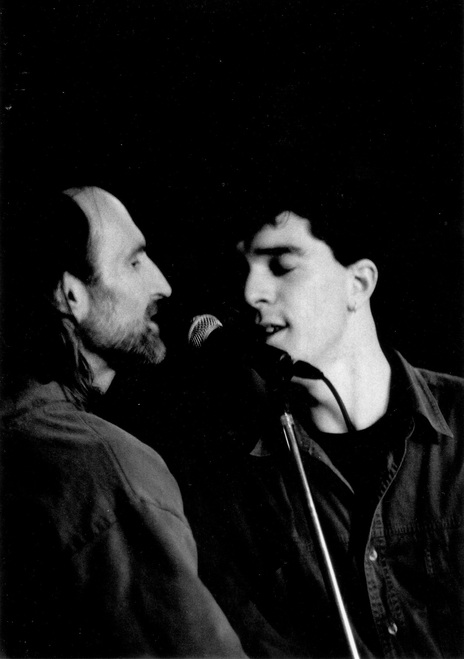
Glen Moffatt (right) with American songwriting namesake Hugh Moffatt, King’s Arms, early 1990s
Photo credit:
Photo by Peter Madill
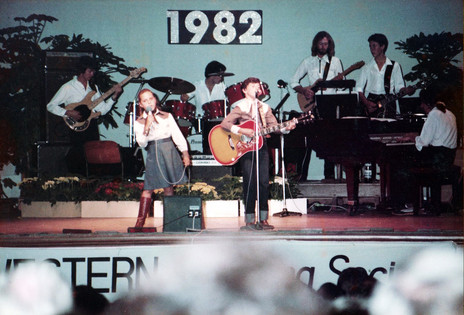
Glen Moffatt and sister Sharlene on stage at the New Year Awards in Country Music, Municipal Theatre, Napier, 1982. Musical director Ritchie Pickett on piano.
Photo credit:
Glen Moffatt Collection
Somewhere in New Zealand Tonight
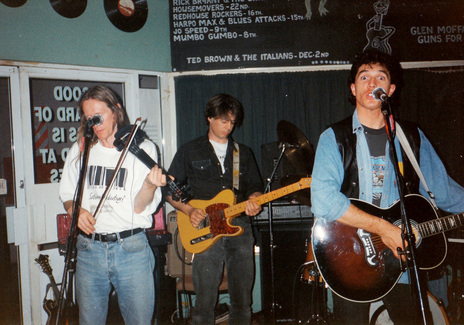
Jono Lonie, Jeremy Dart and Glen Moffatt, Java Jive Café, Ponsonby, 1994
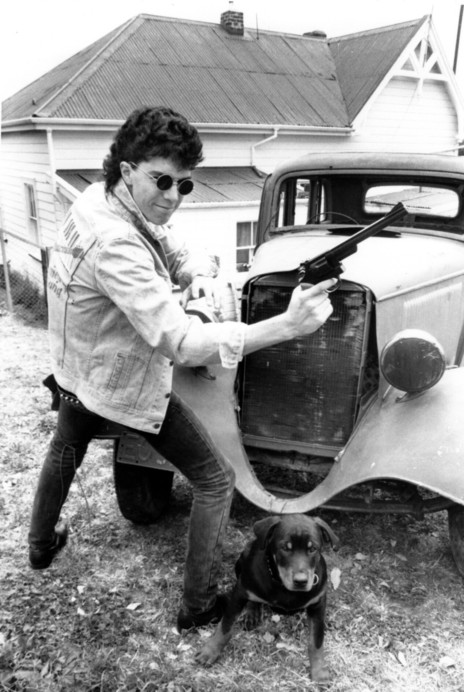
Glen Moffatt in a publicity photo for band The Infamous James Gang, Napier, 1988.
Photo credit:
Warren Buckland
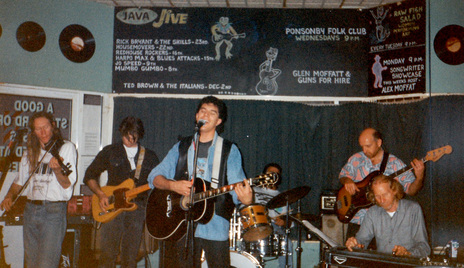
Java Jive Café country nights, 1994. Left to right, Jono Lonie, Jeremy Dart, Glen Moffatt, Mike Abbott (obscured), Alastair Dougal, Red McKelvie.
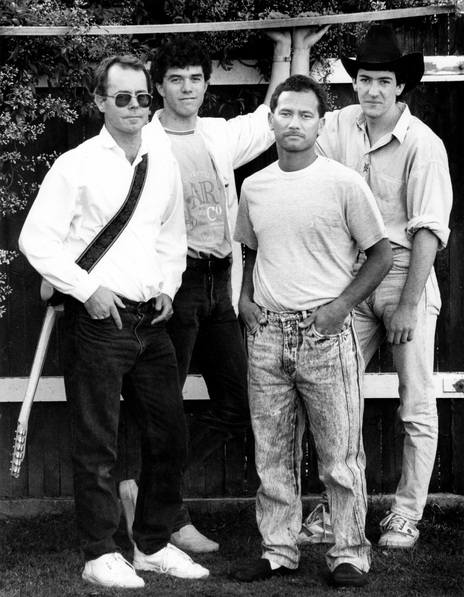
The Colonials, 1990. Left to right, Ian Turbitt, Glen Moffatt, Tamihana Johnston, Simon Beattie.
Photo credit:
Photo by Warren Buckland
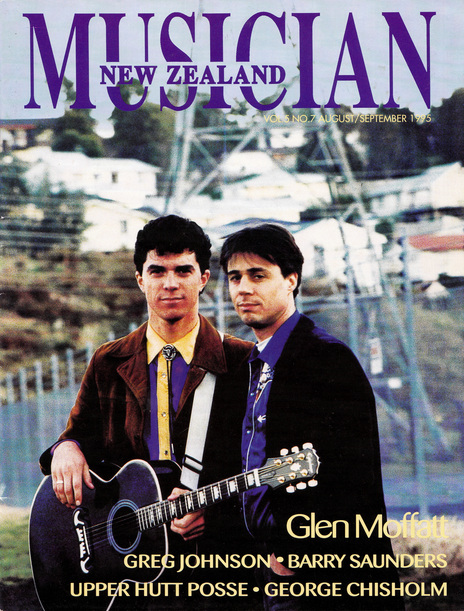
Glen Moffatt and Jeremy Dart on the cover of New Zealand Musician, September 1995
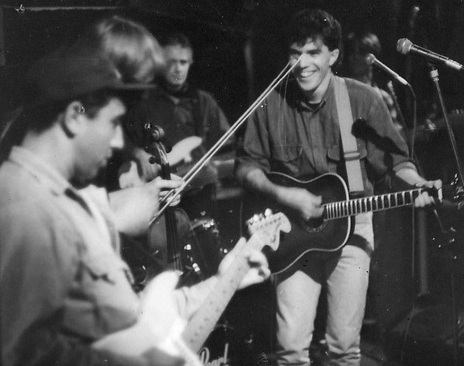
Java Jive Café country nights, 1993. Left to right, Rob Galley, Jono Lonie (obscured), Paul Walker, Glen Moffatt, Jeremy Dart.
Photo credit:
Photo by Billy Lawry
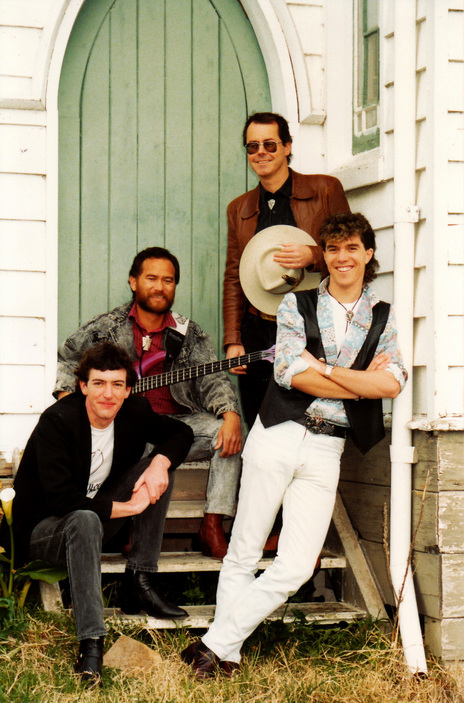
The Colonials, 1991. Left to right, Simon Beattie, Tamihana Johnston, Ian Turbitt, Glen Moffatt.
Photo credit:
Photo by Warren Buckland
Glen Moffatt - Rachel (solo performance for NZ Musician Magazine, 1990s)
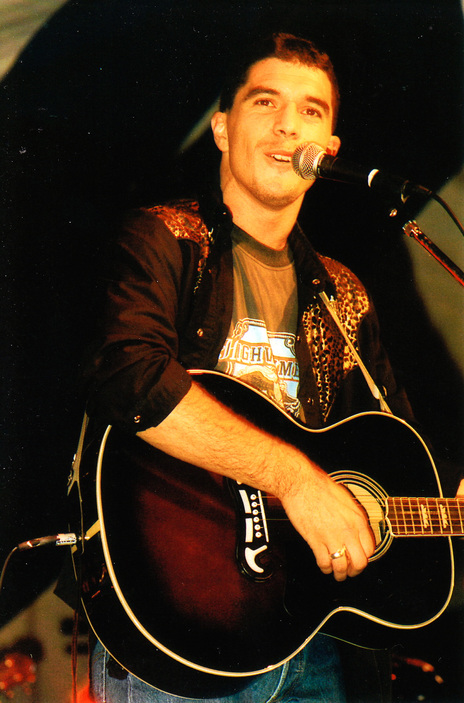
Glen Moffatt, Norfolk Island Country Music Festival, 1997
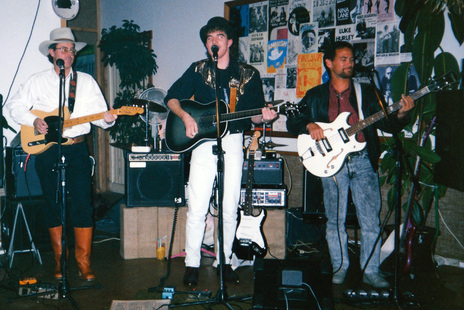
The Colonials at the Iron Pot Café, Napier, 1991. Left to right, Ian Turbitt, Glen Moffatt, Tamihana Johnston.
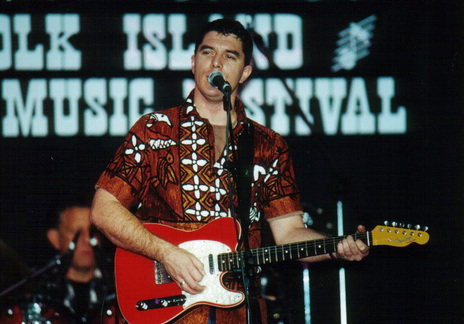
Glen Moffatt, Norfolk Island Country Music Festival, 2001
Glen Moffatt - Anzac Day (1996)
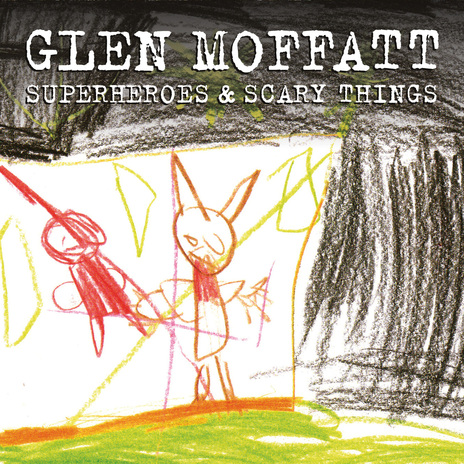
Superheroes & Scary Things, 2014
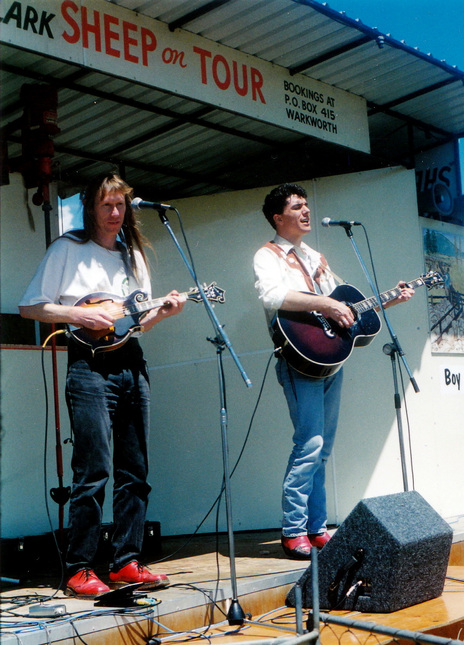
Jono Lonie and Glen Moffatt, Waikato A&P Show, mid-1990s
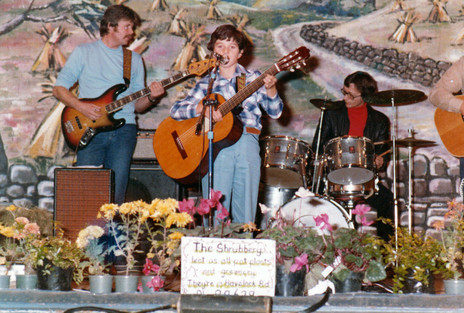
Glen Moffatt aged 10 on stage at the Hastings Municipal Theatre, June 1981. Neil Harrison on bass, Malcolm Thorpe on drums.
Photo credit:
Glen Moffatt Collection
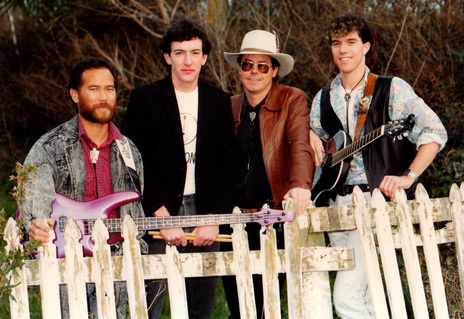
The Colonials, 1991. Left to right, Tamihana Johnston, Simon Beattie, Ian Turbitt, Glen Moffatt.
Photo credit:
Photo by Warren Buckland
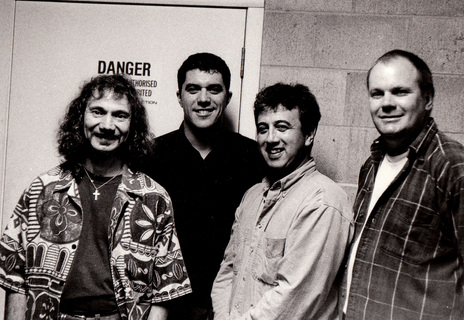
Glen Moffatt Band, 2001. Left to right, Gordon Joll, Glen Moffatt, Rob Galley, Neil Hannan. Credit: Photo by Billy Lawry
Photo credit:
Photo by Billy Lawry
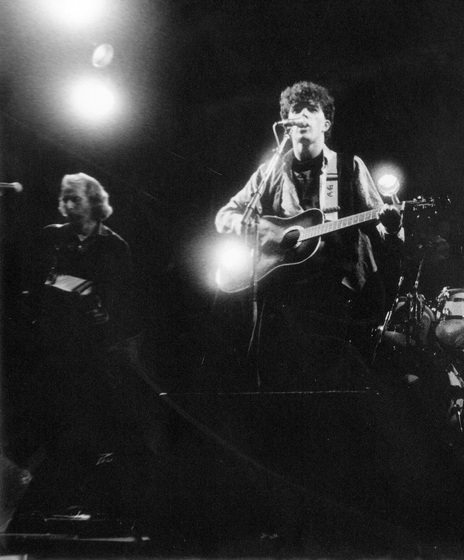
Red McKelvie and Glen Moffatt, Mumbo Gumbo’s debut gig, Gluepot, 1992
Photo credit:
Photo by Alan Fon
Glen Moffatt - Match Made In Hell (co-written with Arthur Baysting, performed live with the Murrumbidgee Country Club Band, Tamworth Town Hall, 2003)
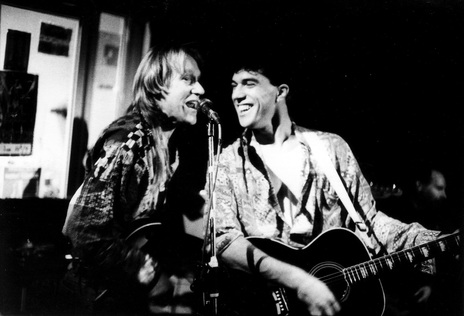
Jono Lonie and Glen Moffatt, Java Jive Café, Ponsonby, early 1990s
Photo credit:
Photo by Billy Lawry
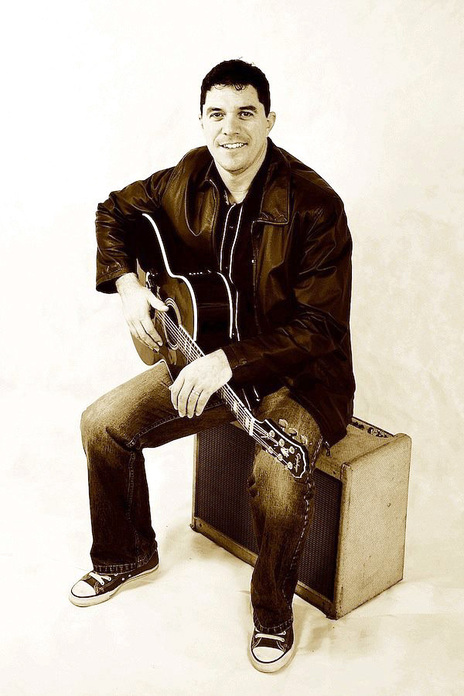
Glen Moffatt, 2011
Photo credit:
Photo by Kjirsten Hartwell
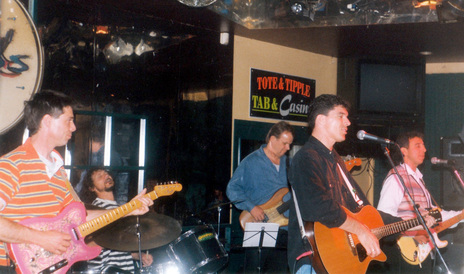
Glen Moffatt Band, somewhere on the Kapiti Coast, 1998. Left to right, Jeremy Dart, Gordon Joll, Neil Hannan, Glen Moffatt, Rob Galley.
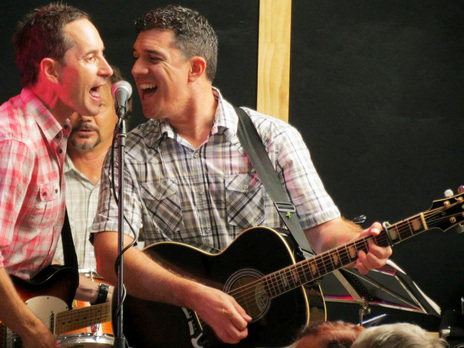
Glen Moffatt & The Tallboys, Stetson Club, Dairy Flat, 2012. Left to right, Chet O’Connell, Gordon Joll, Glen Moffatt.
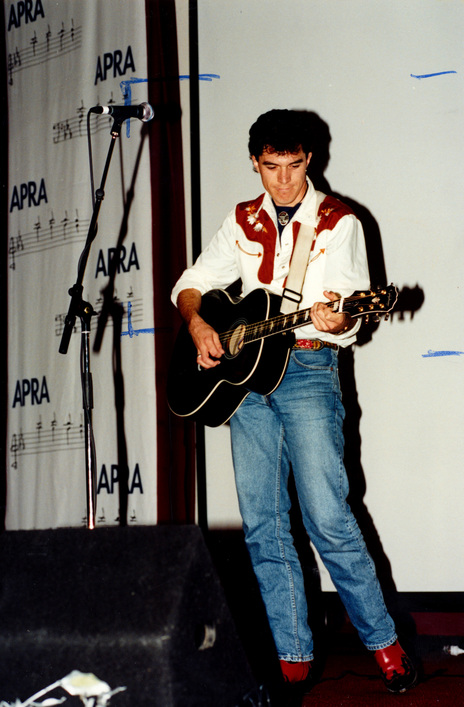
Glen Moffatt performing Dave Dobbyn's Language at the 1995 APRA Silver Scrolls
Glen Moffatt and the Tallboys - Keeping Your Head Above Water (live at the Cabana, Napier, 2012)
Glen Moffatt - Good Morning Mr Rock and Roll (NZ Music Awards 1997)
Glen Moffatt and the Tallboys - When She Drinks (live at the Stetson Club, Dairy Flat, Feb 2012)
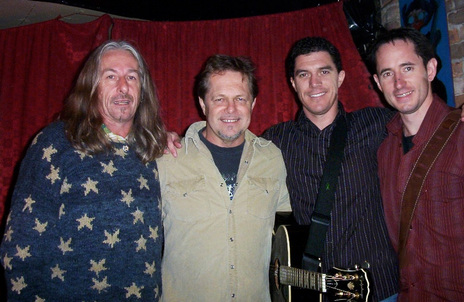
Ritchie Pickett, Bill Chambers, Glen Moffatt, Chet O’Connell, Kaponga Backgammon Club, 2004
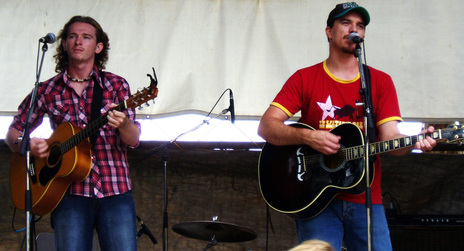
Michael Muchow and Glen Moffatt at the Boozed and Rooted Festival, Billinudgel, NSW, 2005
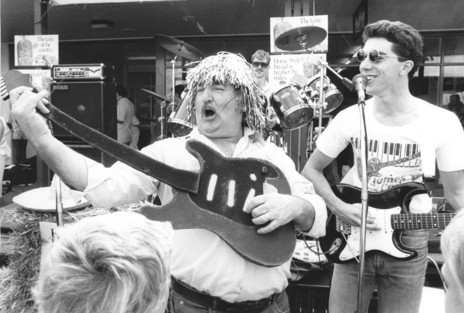
Glen Moffatt with early Napier mentor Jim Toner, circa 1989.
Photo credit:
Glen Moffatt Collection
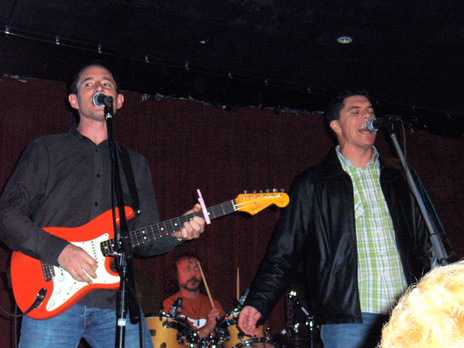
Chet O’Connell, Gordon Joll and Glen Moffatt at the Pitch In 4 Pickett fundraiser, King’s Arms, 2007
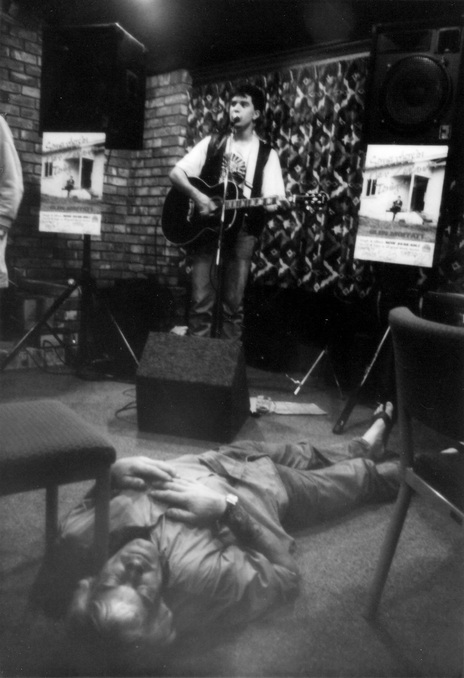
A captive audience at the Waikaia pub, 1996. Glen Moffatt and unidentified fan.
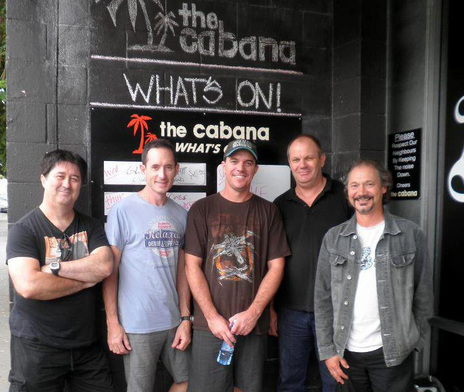
Glen Moffatt & The Tallboys outside the Cabana, Napier, 2012. Left to right, Randal Terrens, Chet O’Connell, Glen Moffatt, Neil Hannan, Gordon Joll.
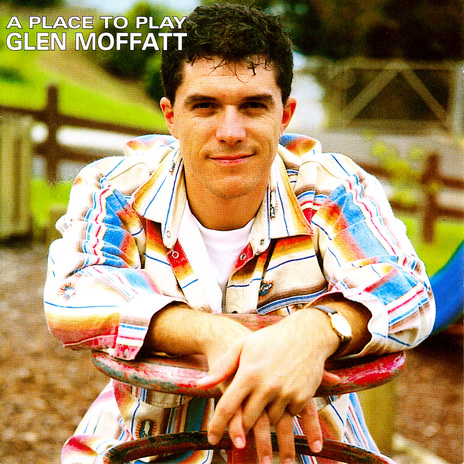
A Place to Play, 1998
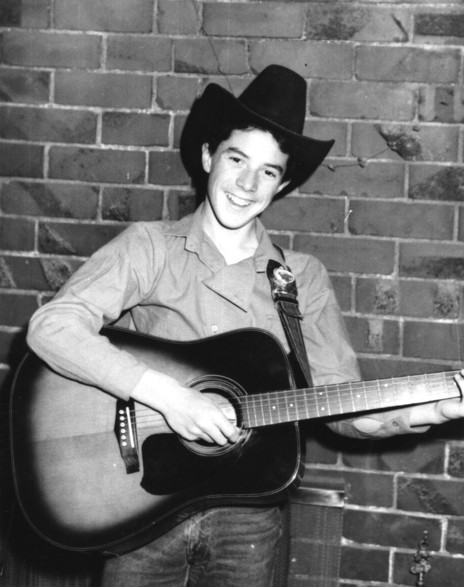
Glen Moffatt aged 15, 1986.
Photo credit:
Glen Moffatt Collection
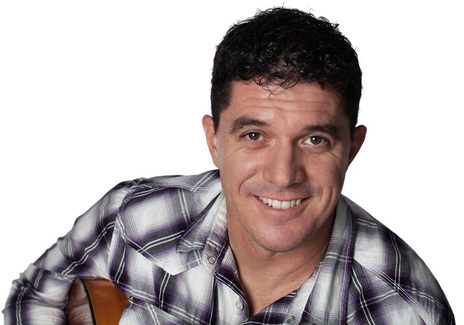
Glen Moffatt, 2013
Photo credit:
Photo by Jocelyn Carlin
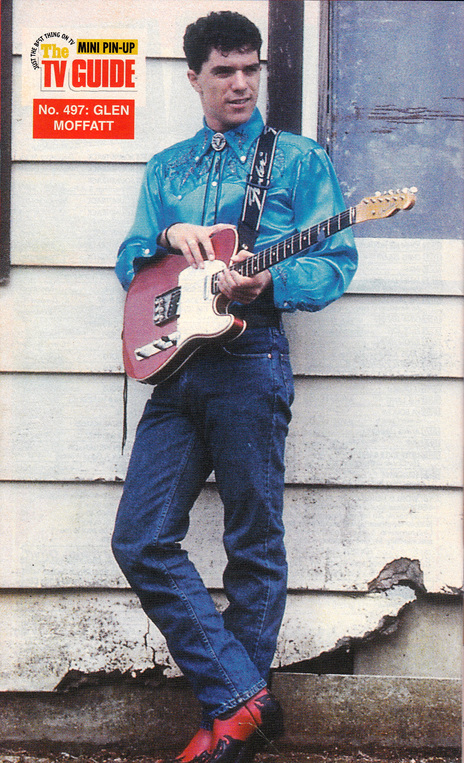
Glen Moffatt, TV Guide pin-up, 1996
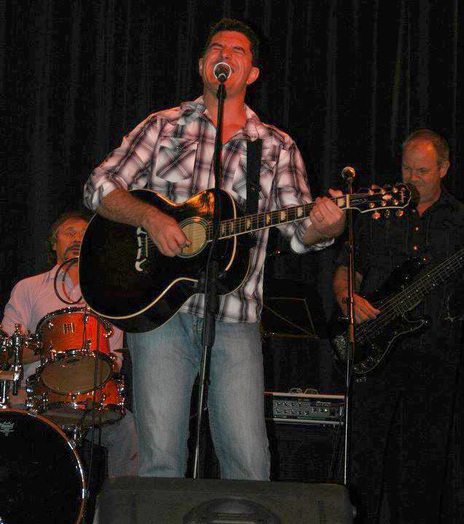
Glen Moffatt & The Tallboys, SkyCity Hamilton, 2012. Left to right, Gordon Joll, Glen Moffatt, Neil Hannan.
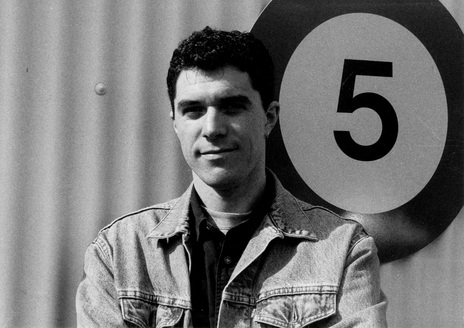
Glen Moffatt, 2000
Photo credit:
Photo by Billy Lawry
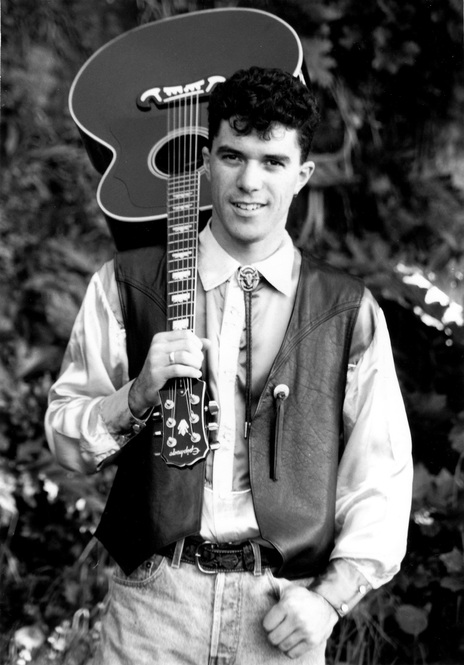
Glen Moffatt, 1995
Photo credit:
Photo by Alan Fon
Glen Moffatt with the Smokin' Crawdads - It's All Over Now (Baby Blue)
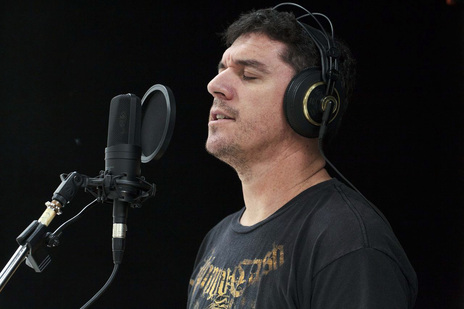
Recording Superheroes & Scary Things, SDL Studio, Auckland, 2013
Photo credit:
Photo by Jocelyn Carlin
Glen Moffatt - She's Not A Honky Tonk Woman (with the Murrumbidgee Country Club Band, Tamworth Town Hall, 2003)
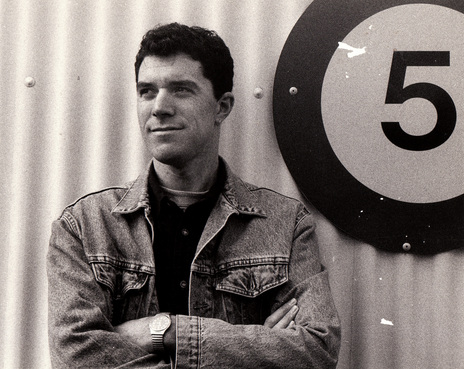
Glen Moffatt, 2000
Photo credit:
Photo by Billy Lawry
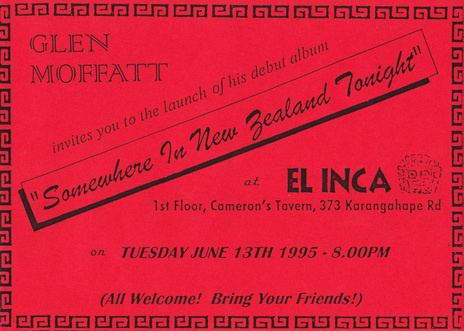
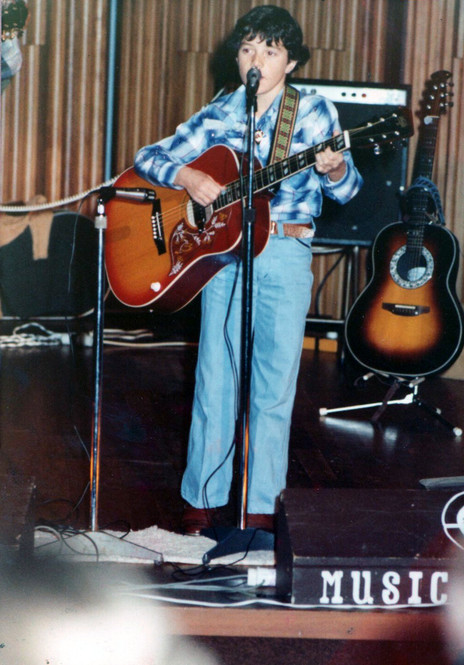
Glen Moffatt aged 10 on stage at the Century Theatre in Napier, 1981.
Photo credit:
Glen Moffatt Collection
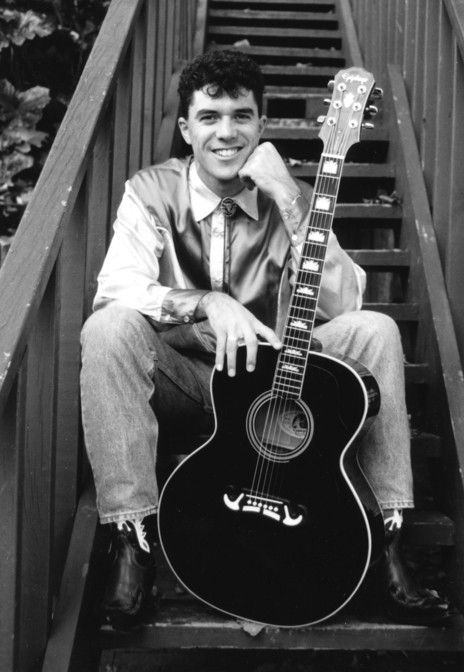
Glen Moffatt, 1995
Photo credit:
Photo by Alan Fon
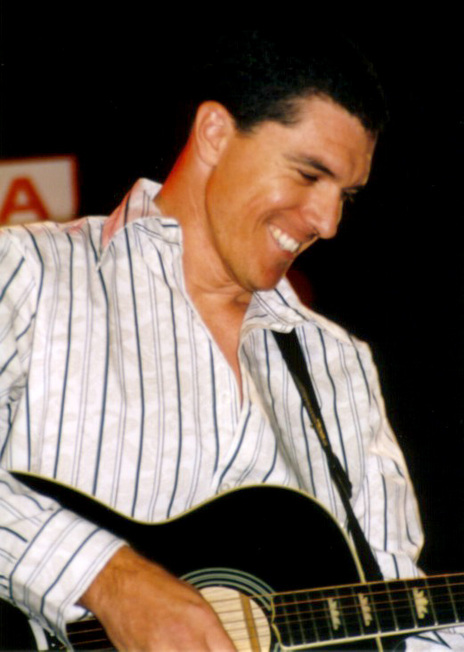
Glen Moffatt, Tamworth, 2003
Photo credit:
Photo by June Underwood
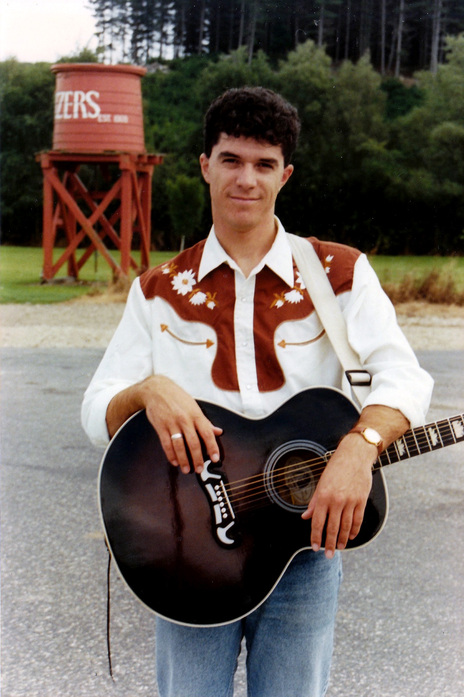
Glen Moffatt, 1996
Photo credit:
Photo by Alan Fon
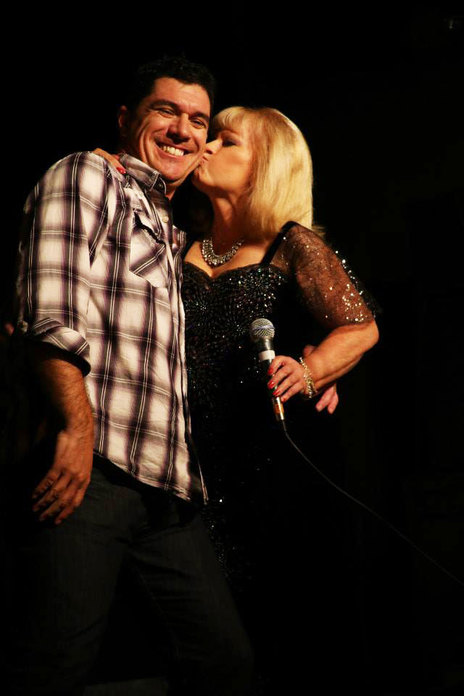
Glen Moffatt and Suzanne Lynch at the New Zealand showcase, the Norfolk Island Country Music Festival, May 2015
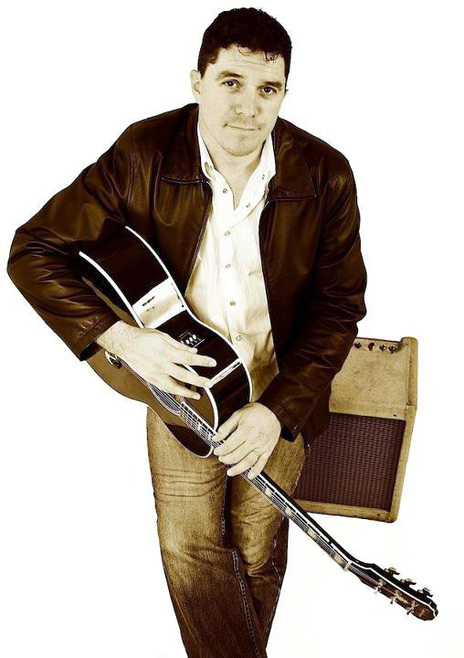
Glen Moffatt, 2011
Photo credit:
Photo by Kjirsten Hartwell
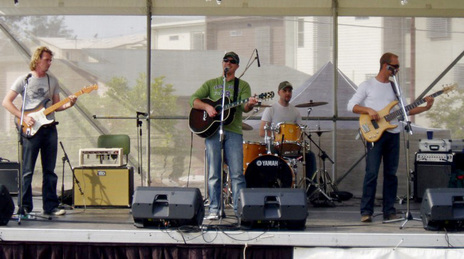
Glen Moffatt & The Tallboys, Brisbane, 2007. Left to right, Michael Muchow, Glen Moffatt, Leon Ernst, Micah Reimers.
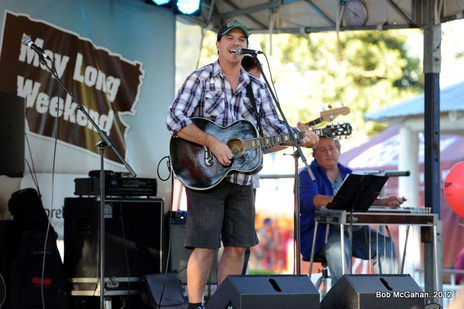
Glen Moffatt at the Urban Country Music Festival, Caboolture, 2012
Photo credit:
Photo by Bob McGahan
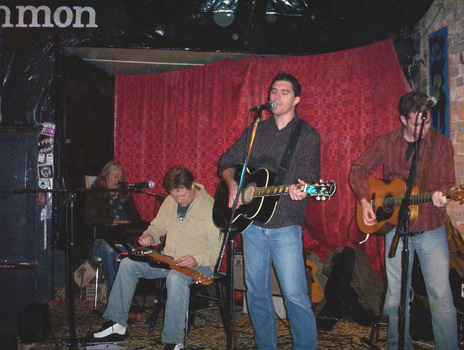
Kaponga Backgammon Club, 2004. Left to right, Ritchie Pickett, Bill Chambers, Glen Moffatt, Chet O’Connell.
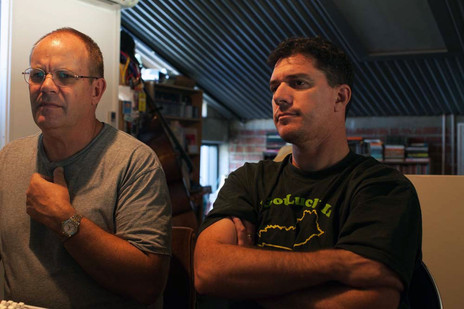
Neil Hannan and Glen Moffatt recording in Auckland, 2014
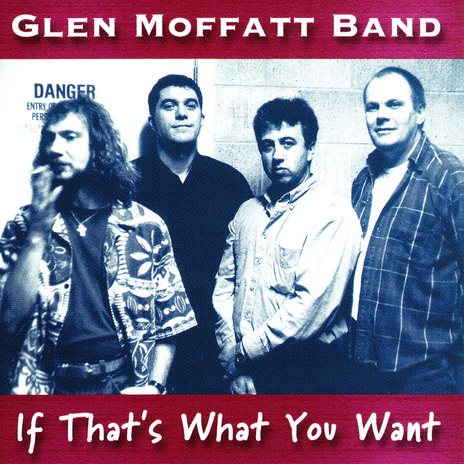
If That’s What You Want, 2001
Glen Moffatt and the Tallboys - Radio Radio (live at the Cabana, Napier, 2012)
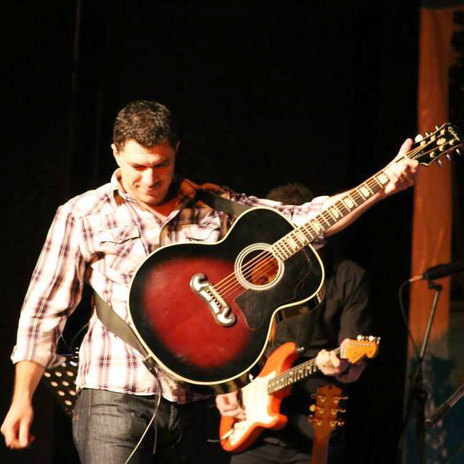
Glen Moffatt at the Norfolk Island Country Music Festival, May 2015
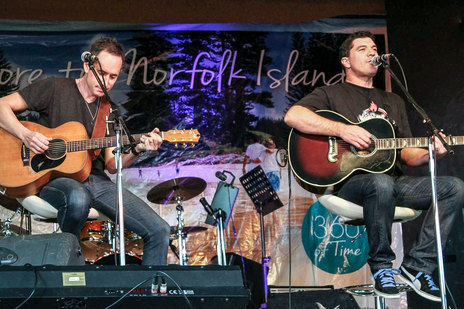
Chet O'Connell and Glen Moffatt at Rawson Hall, Norfolk Island, as part of the Norfolk Island Country Music Festival, May, 2015
Photo credit:
Photo by Donna Gillett
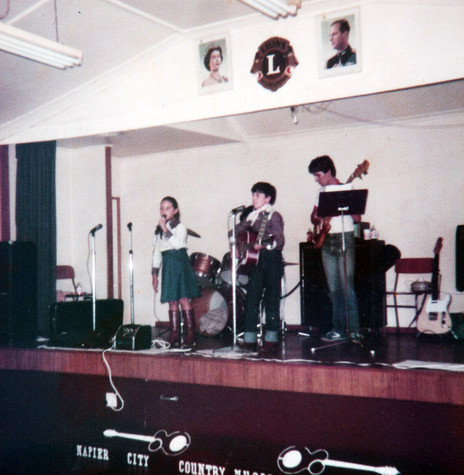
Glen Moffatt and sister Sharlene on stage at the Lions Hall, Napier, January 1982. John Wraith on bass guitar.
Photo credit:
Glen Moffatt Collection
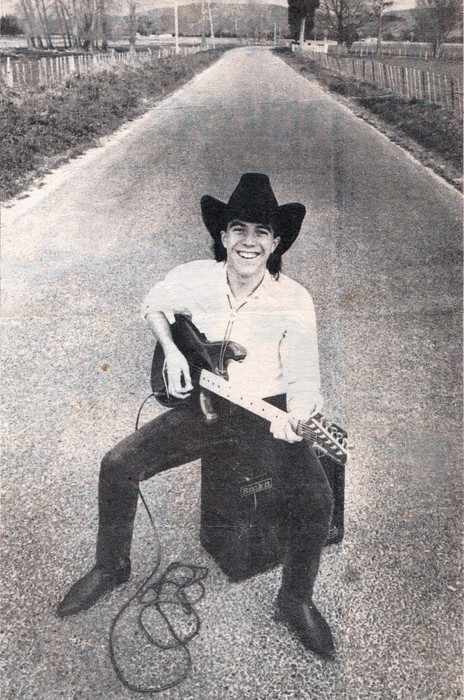
Not really middle-of-the-road Glen Moffatt, aged 17, 1988.
Photo credit:
Glen Moffatt Collection
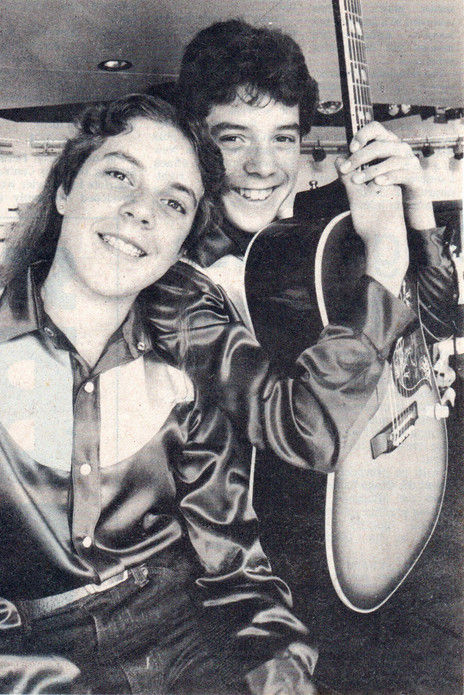
Glen Moffatt and sister Sharlene as they appeared in the Napier Daily Telegraph, January 1985.
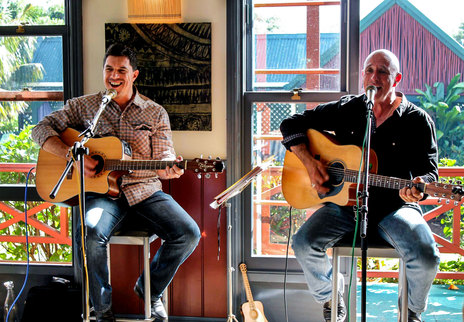
Glen Moffatt and Kim Davies, singing at Heritage Hill Restaurant, Norfolk Island, May 2015, as part of the Norfolk Island Country Music Festival 2015
Photo credit:
Photo by Donna Gillett
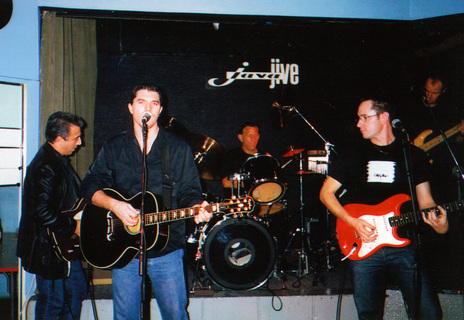
Glen Moffatt’s Java Jive Café farewell, 2002. Left to right, Rob Galley, Glen Moffatt, Ricky Ball, Chet O’Connell, Neil Hannan.
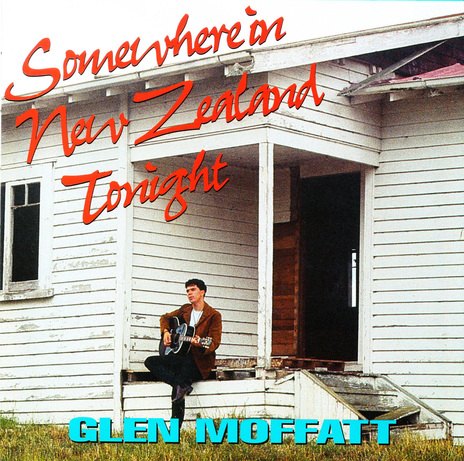
Somewhere In New Zealand Tonight, 1995
Labels:
Sun Pacific
Scoop De Loop Records
Links:
Trivia:
When Glen Moffatt was part of The Colonials in Napier in 1990 and 1991, bass player Tamihana Johnston’s 13-year-old son Jason would occasionally fill in on drums. Now grown, Jason Johnston is the drummer in the internationally acclaimed Jakob.
Discography









